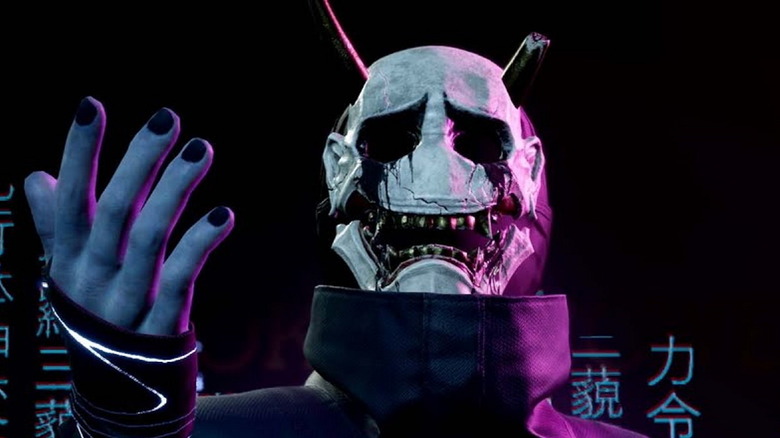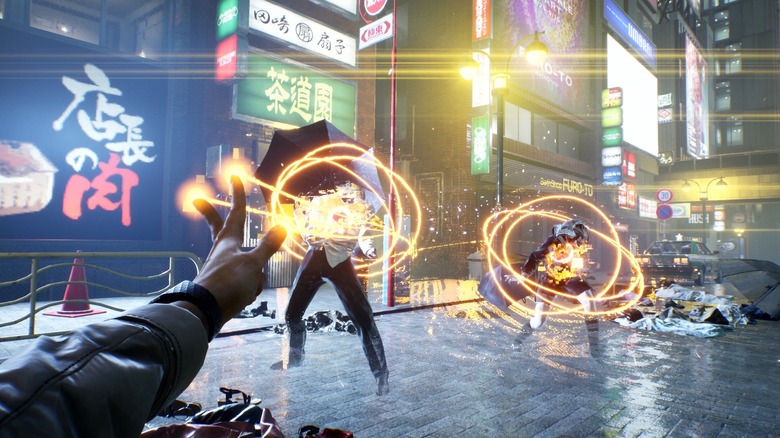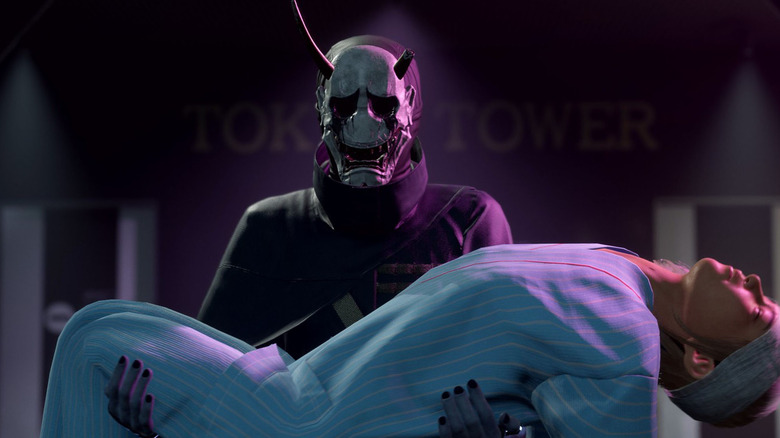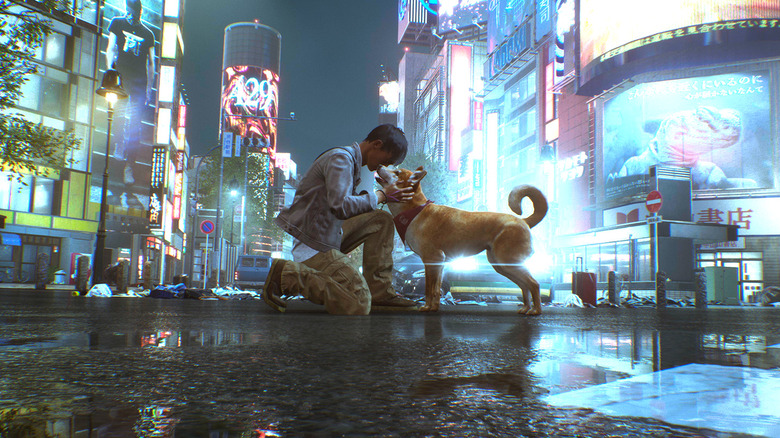What The Critics Are Saying About Ghostwire: Tokyo
Despite only having two games under its belt to this point, Japanese developer Tango Gameworks is no stranger to horror video games. Founded by former Capcom employee Shinji Mikami — one of the minds behind "Resident Evil" and "Dino Crisis" — Tango burst onto the scene with "The Evil Within" in 2014. "The Evil Within 2" followed in 2017, receiving praise for its ability to create a dire and creepy atmosphere, even if it didn't have the best story to go with it. Imperfections aside, Tango Gameworks and Mikami both have the pedigree and resume that will immediately attract any gamer that expects their experience to loom over them.
In this regard, "Ghostwire: Tokyo" is an ambitious endeavor from Tango and its longtime publisher Bethesda. Though the new timed-exclusive IP for the PlayStation 5 and PC does contain horror elements, the overall experience is more akin to a traditional action-adventure game. "Ghostwire: Tokyo" is set in a post-apocalyptic version of Japan's most populous city in which most of its citizens have mysteriously disappeared replaced by nefarious spirits known as Visitors. The story follows a possessed man named Akito, who confronts Tokyo's unwanted guests with supernatural powers of his own.
On paper, the game has an intriguing premise. But does Tango Gameworks nail the execution? Here's what critics have said about "Ghostwire: Tokyo."
The combat in Ghostwire: Tokyo is good, but repetitive
In order for an action-adventure game of this kind to truly succeed, it has to execute well when it comes to that first word: action. And in this regard, "Ghostwire: Tokyo" has been given praise. However, there have been some complaints of repetitiveness.
Blake Hester of Game Informer enjoyed the combat loop. "There's a solid weight and crunch to combat that's satisfying from an audio and visual perspective," Hester says. "All Akito's elemental powers have their unique advantages, too. I enjoyed swapping between my fire attack, which casts a high-damage explosion, and my water attack, which sends out a wide arc that hits multiple enemies at once." Andrew Webster of The Verge also enjoyed the combat elements of "Ghostwire: Tokyo," saying that it had a "'Doom'-like balletic feel" and that the use of magic in the first-person perspective "plays out kind of like a first-person shooter, only without guns."
However, Cam Shea of IGN called the game's combat "one-dimensional," saying that "[Ghostwire's] system of elemental attacks offers a pretty fresh take on first-person ranged combat – it just doesn't go far enough to develop it into something special." Kieron Verbrugge of Well Played expressed similar sentiments. Though he enjoyed the game overall and praised the action-packed visuals, Verbrugge summed up the game's combat as "one-note."
Overall, it seems like "Ghostwire: Tokyo" will offer a fun form of spell-casting combat from a first-person perspective. However, don't expect the combat experience to evolve much as you get deeper into the game.
Ghostwire: Tokyo's story has polarized critics
Now, for the "adventure" part of the equation. The story of a possessed man fighting against evil spirits and cultists sounds intriguing enough, but the final product of such has divided reviewers in terms of its quality.
In a review for IGN, Cam Shea said that the story in "Ghostwire: Tokyo" feels bogged down by a poor resolution to the game's narrative, as well as a "cartoonish big bad" of a main villain. Joshua Duckworth of GameRant said that while the game's side-quests are interesting enough, the main story falls victim to poor pacing. Duckworth felt that the beginning and end of "Ghostwire: Tokyo" is "intense" and "terrifying," but that the middle section of the game "feels less driven." Conversely, Jacob Zeranko of Screen Rant called "Ghostwire: Tokyo's" story "fantastic" and "complex." In a glowing review for Finger Guns, Miles Thompson praised the game for its "touching narrative" and the "substantial development" between Akito and KK, the spirit who has inhabited him.
The story in "Ghostwire: Tokyo" appears to be an element that players will either completely latch onto, or disregard as hogwash. Though some reviewers have enjoyed the game's story and the dynamic between its "two" protagonists, the pacing and underdeveloped main villain can potentially derail the experience.
Critical reception to Ghostwire: Tokyo has been mostly positive
"Ghostwire: Tokyo" has received mostly positive reviews from critics, but that reception comes with a few caveats. On Metacritic, both the PlayStation 5 and PC versions of the title have attained what the website calls a "generally favorable" consensus. The reviews for the game seems to be indicative of an experience that is objectively good in many ways, but fails to spectacularly deliver in any of them. The combat in "Ghostwire: Tokyo" received its fair share of plaudits, but its repetition put a lot of people off. Meanwhile, the game's main story has been called everything from "touching" to "dull." In other words, people seem to think the game is definitely entertaining, but it isn't likely to blow you away.
Writing for PowerUp!, reviewer James Wood seems to sum up the game's reception perfectly. "There's a great game just beneath the surface in Ghostwire: Tokyo obscured and pained by the pretty good one layered on top," Wood said in his review. He added, "the game is flawed and prone to mistakes that drive away affection it rightfully deserves."
Time will tell how "Ghostwire: Tokyo" will be viewed after it's had time to settle in with the gaming community. But for now, the main takeaway seems to be that the game is good, but not great.




